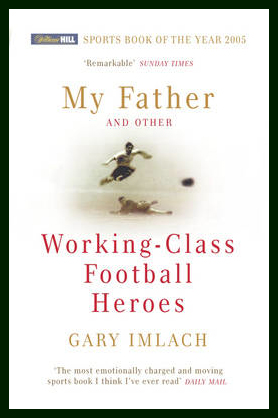The Collision of Ethnicity, Class, and Memory in My Father and Other Working Class Football Heroes
If one believes the authors of Soccernomics, the provincialism of the nation’s working class remains one of the maladies plaguing English football. Though the authors acknowledge England’s creeping post war “embourgeoisement”, working class attitudes continued to dominate footballing circles and not necessarily for the better. In America, football depends largely on the middle class, but in England, for much of its sporting history, working class culture produced the vast majority of players. Soccernomics laments this development, suggesting the exclusion of the nation’s middle classes from competitive soccer acts as a “brake” on England’s international hopes. Furthermore, Simon Kuper and Stefan Szymanski argue that the provincial proletarian mindset continues to bedevil the sport. Pointing to the insights of Manchester United Manager Alex Ferguson as evidence, Britain’s working class players subscribe to a theory of work in which they are “entitled” to a couple pints every night (provided they’ve put in an honest day’s work), not to mention the semi-frequent Saturday night bender. Ferguson identifies this belief system as a direct result of “the shift worker’s mentality”. How very Scottish.
The authors are not completely unkind. They point to long traditions of self education among working peoples, the rise in college attendance among the general British public, and the blame that the middle and upper classes deserve for the wayward educational opportunities of England’s proletariat, yet despite these examples “the anti-intellectual attitudes that the soccer administrators encountered do seem to be widespread in the English game,” write the authors, “These attitudes may help explain why English managers and English players are not known for thinking about soccer.” [21] For many players and managers, education serves as a mark of suspicion rather than achievement; Kuper and Szymanski label this the “anti-educational requirement.”[22] While Soccernomics points to many truths about the game, it is not the rosetta stone of football. The book is sometimes guilty of ahistoricism (or at the very least flawed periodization that doesn’t always fully reveal all the nuances and turns of their subject’s narrative) and economic determinism (which some fairly point out should not be a surprise considering its title). The question is, how to get at these slippages?

